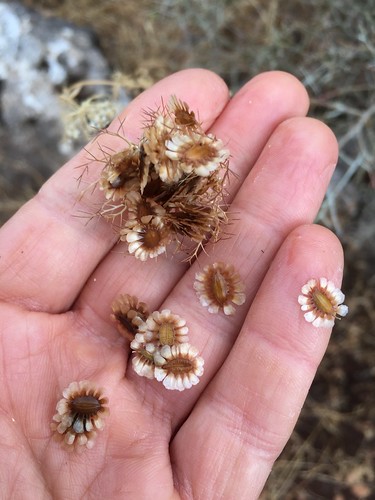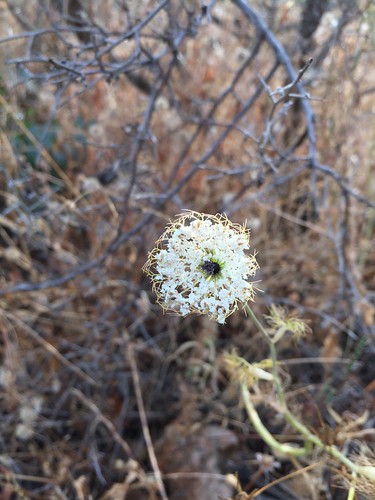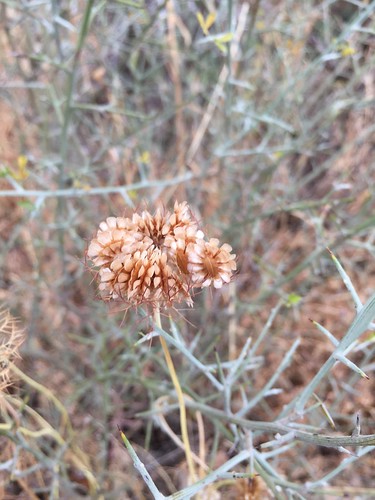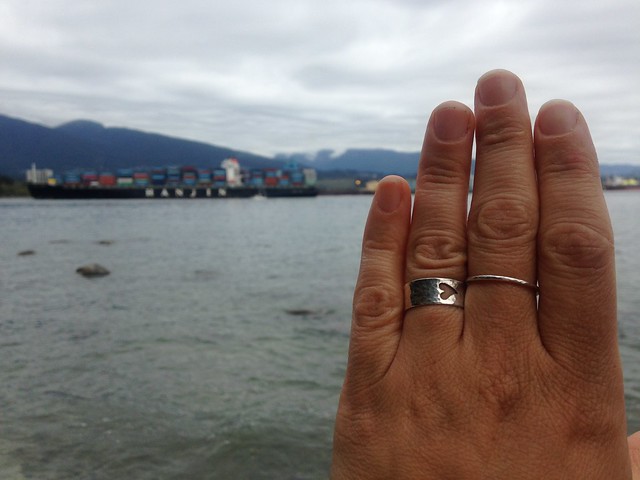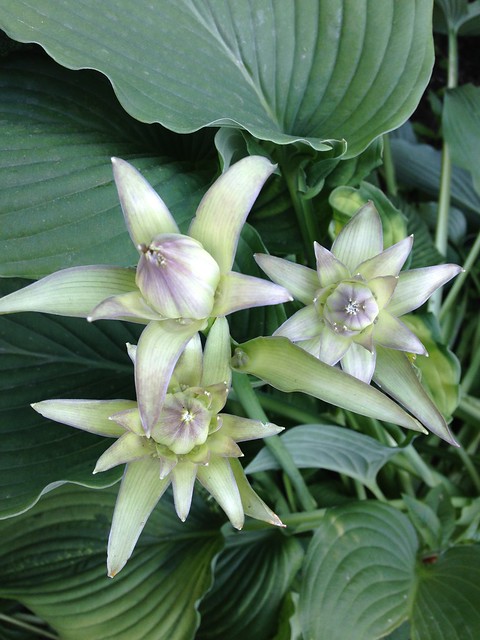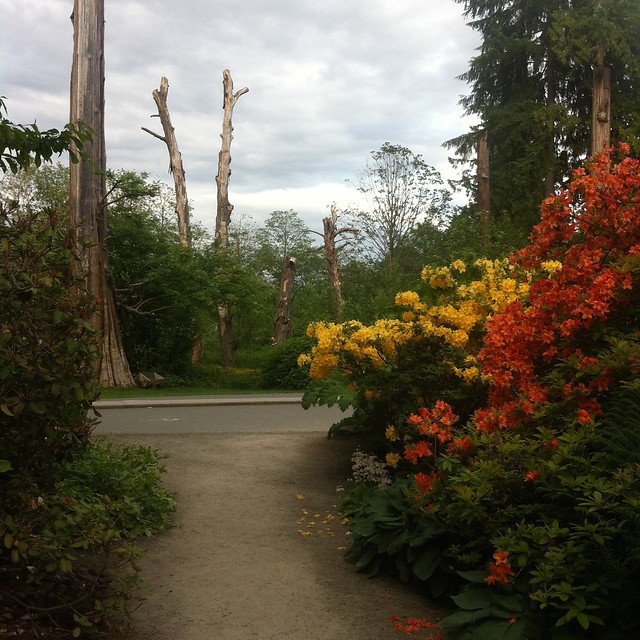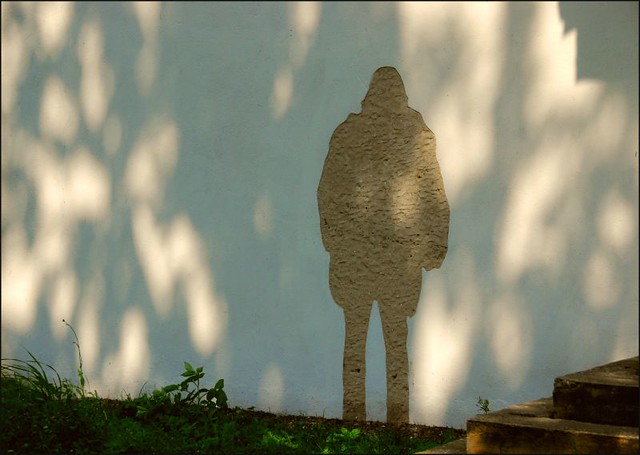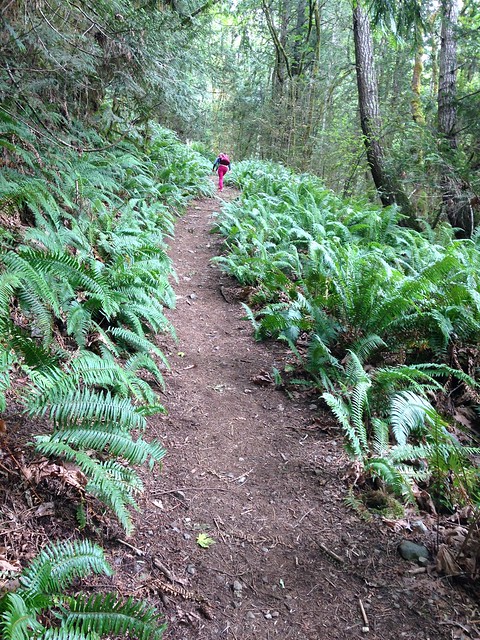
Last Thursday, we were vacationing in the Sunshine Coast, and I decided to climb up
Mount Daniel with my daughter. It seemed especially appropriate because this mountain was traditionally used by the Coast Salish people (the region's First Nations) to initiate their young girls into womanhood. Our vacation was all about celebrating my daughter's high school graduation - so this seemed meant to be...
We packed some snacks and water, my handmade mosquito spray, lavender oil for bites and cuts, and started going up the trail. It was supposed to be about 45-60min hike, climbing up to 440m elevation. My daughter is significantly fitter than I am - she never gets tired when we walk the beautiful trails in the parks around us, and there is no shortage of uphill and downhill where we usually walk. She always walks way ahead of her old mamma. I thought she'll enjoy the challenge. I was so wrong. She was still walking ahead of me, but made clearly audible signs of discomfort and discontent with the whole ordeal. Five minutes into the walk I was already worried so I asker her if she wants to go back to the car or walk on and she wanted to go back. She complained about headache and looked kinda pale too... Or maybe I was just imagining this. I have no idea why, I decided to continue... But insisted that we stop for breaks and drink water and snacks on the way up. And also that she walks behind me (in old mamma pace, that is) rather than lead in her super-girl stride. Things got a little better then, and she was not in as much distress as before.
We kept walking up what turned out to be beautiful but not at all easy trail. Which meant that we couldn't really enjoy the flora and fauna all that much because our gaze was too focused on the trail and what our next step should land on. And the summit is always invisible, which adds to the uncertainty, anxiety, and anticipation. It's really easy to lose the big picture when climbing a mountain, forget why we are even here... Each step, and sometimes breathing itself is so painful and we get too focused on the rhythmic stride and breath-mechanism and feeling the suffering - unable to converse or sing or really pay attention to anything else that makes striding along a path in nature enjoyable on most other occasions... And from a caregiver's point of view, it is much harder to pay attention to my daughter's needs and state of mind if I'm struggling myself. It's so much easier to help others and be mindful of their needs when you are well yourself.
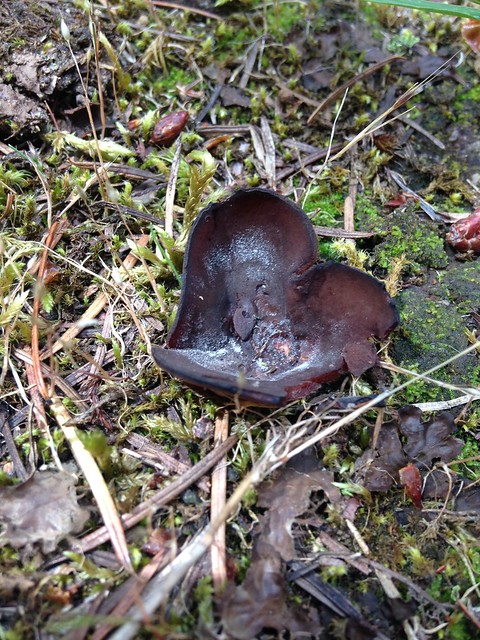
In the end, it took us more than an hour to get up there (we stopped about 4 times to catch our breath). And when we got to the first summit I thought we got lost - because there was non of the view that everyone who told us about this trail raved about... But we enjoyed the grass and moss covered rocks, and the warmth of the sun, and the smell of West Coast
Garrigue - the mingling of arbutus, berries, sun-warmed grass, conifer needles and moss-covered rocks. I even found a heart-shaped fungus! We peeled an orange and Tamya drew a little bit and began to feel happy and proud again.
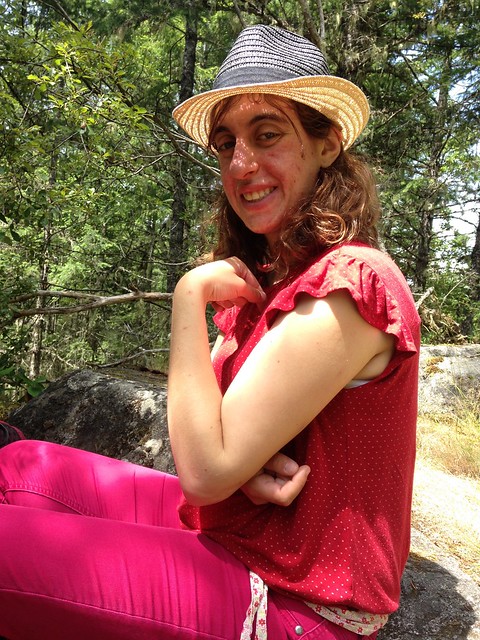
Thankfully, we quickly found our way back to the obscured trail, and less than five minutes later the second summit with the promised view unrolled in front of our eyes. We stopped there for a while, snacking on wild blueberries, drawing and writing in our journals, meditating on the meaning of climbing a mountain and dragging your children into an adventure that perhaps has very little meaning to them... But is important for you. And now after watching this trailer, I'm also seeing the other broader analogies to this very stressful transitional time into adulthood. As a society, we expect our children to fly the coup at 18 (or 20 at the most). We equate "independence" as "success". But what when this is not possible? Where do you draw the lines between what your grown-up child's needs and what you need as a human who's been a caregiver for over 19 years, and mentally should prepare to remain in that role for as long as you live? How do you keep that balance of respecting another person's choices (or even giving them choices), when it is very unclear which understanding they have of major life decisions? Which brings me to - what do we know at all about major life decisions? And what happens when all your mistakes don't just affect yourself, but also your dependant yet grown-up child?
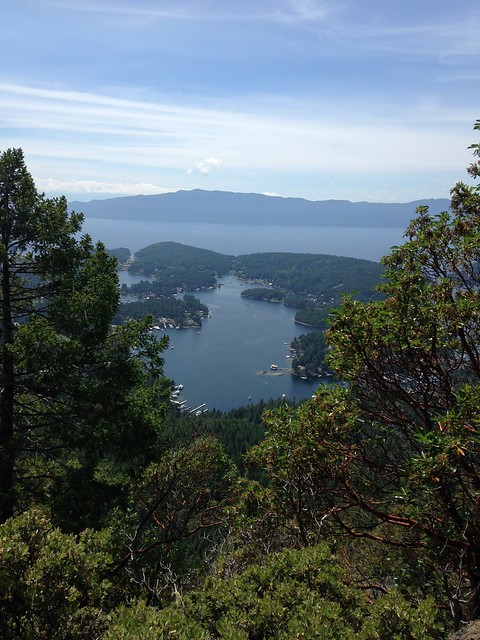
All my life I've been told that "What's good for the caregiver is better for the dependant too". This seemed like golden advice when my daughter was still a minor. Somehow, it feels really selfish and icky to take on that responsibility of potentially ruining your most beloved person in the world just because you need to do something for yourself for a change. And then you realize, that like anything in life, decisions are never cut and dry "good" or "bad". That even a "better" decision will always leave you with a huge chunk of gut-wrenching guilt and sadness. And that sometimes you don't really know that you made a mistake until 20 years into it...
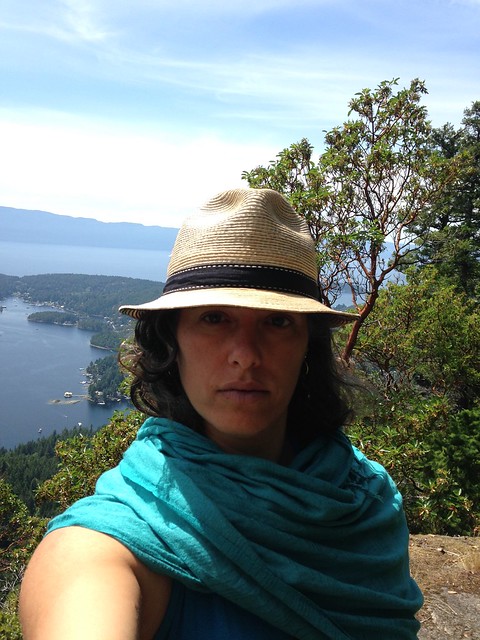
P.s. You should watch the trailer (or the whole movie)
"My Brother is Brave"
